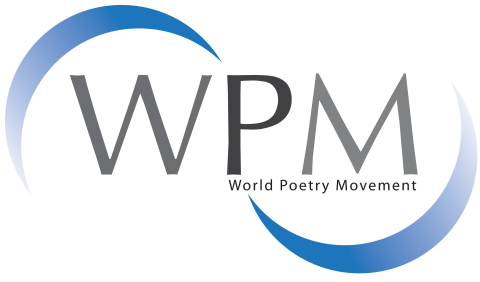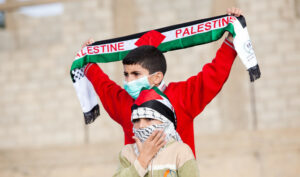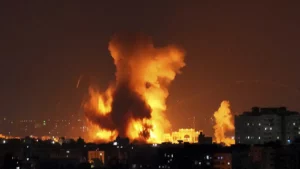By Fernando Rendón
Dear poet brother Freddy Ñáñez, member of the WPM CC and Sectoral Vice President of the Bolivarian Republic of Venezuela, dear delegates from Asia, Africa, Oceania, Europe, and the Americas:
It is a privilege and great joy to extend our warm welcome to this historic first Congress of the World Poetry Movement. We gather under the sign of poetry to reflect on how we must employ the power of words to contribute to transforming reality and existence.
Our Congress is an invitation to dialogue about the challenges we face as poets in a world besieged by extreme difficulties and constant change. I appreciate your presence and dedication to this powerful cause.
Despite the cruel processes of colonialism and slavery suffered by Third World peoples at the hands of European invaders, and their brutal dependence on transnational neocolonialism, the chants of primitive peoples and ancient cultures have survived. Their memory has inspired sacred books, the mythical substratum of humanity in our time.
The surviving poets of primitive peoples from Africa, Asia, the Americas, and Oceania still unite their people, scrutinize and dream of the world from the refined perception of their senses, employ spiritual plants to heal and strengthen the spirit of their clan, safeguard the purification of the heart, and call upon the impossible upon which they establish themselves.
Their songs reflect the vigorous exuberance of nature in its origins. Poetry was the magical connection with the Milky Way and an exhortation to care for the unity and harmony of living beings. In the starry night, their crazy filigree dance still vibrates over the transfigured meadow.
The departure of human beings from the path of poetry marked the threshold of prolonged human decadence. A poem proves that the ghost of terror roamed the world from the root of civilizations. “Oh Sumeria, land of fear, where man trembles!” In parallel, against death, the hero Gilgamesh sought and found the plant of immortality. Poetry is the manifestation of our spiritual history and the great proof of our existence.
The West forgot its roots, the ancient primordial energies, and the constellations of which it was a part, as William Yeats wrote. The outbreak of destitution resulted in the accumulation of countless hardships of existence, caused by bellicose greed, exclusion, and exploitation. The pettiness that has governed the world has brought ruin to the earth and nations.
In the manner of cultural heroes, humanity traverses its own hell, attempting to rediscover, like oxygen through its experience with death, the meaning of living.
Centuries of spilled blood have unfolded, cycles of violent incursions and wars of resistance of peoples and nations, class struggles and revolutions, advancements and setbacks in the bloody history of the ephemeral.
Poetry recovers human identity for the world. One is another. We are also the others. And we are also the Earth that envelops and caresses us in death. We recognize ourselves in the infinite richness of plurality, in the multiplicity of manifestations of existence. The poetics of peoples illuminate their work and their destiny.
The painful and protracted war in Ukraine, caused by the tense global political situation that creates constant skirmishes of world war in diverse countries and regions, with an ongoing experimentation of armament that includes depleted uranium ammunition, reflects the seemingly irreconcilable disagreements between defined power blocs in the present. The dark reserved card is always that of nuclear war, which would put an end to the adventure of life on the planet. We are all warned and threatened by this grim circumstance.
I would like to quote in this regard a poem by the great Vietnamese poet Huu Thin:
I ask the earth: How does the earth live with the earth? / -We honor each other. / I ask the water: How does the water live with the water? / -We fill each other. / I ask the grass: How does the grass live with the grass? / -With the horizon, we intertwine. / I ask man: How does man live with man? / How does man live with man? / How does man live with man? /
To defend the Earth is to defend life. Our entire culture must be based on this truth. The ascending sign of the centuries to overcome mortal risk is cohesion, interrelation, and mutual cooperation among nations and among human beings.
The time to effect change is short. The poet detached from time inquires about deadlines, looks at their eternal hourglass, knowing that humanity remains excluded from the homeland of other suns. Lost and confused, exhausted from killing and being killed, it will turn its gaze to the green sprouts that flourish in the mutilated forest of despair.
The Spirit of Nature, as a new conjunction of humans, the earth, and the stars, will not return by itself; it must be sought. Humanity will not regain itself on its own; it must be helped to recover. The poem that will revive the rose from the ashes has not yet been written. We are not the saviors of the world, but we will undertake an exceptional task that is literally in our hands.
Man is the missing link of myths. His metamorphosis has weakened. Instead of new winged beings, new monsters have appeared on Earth. Let the luminous blood of myths and poetry embody perpetual presence in confluence, in order to ensure the new human rebirth. Through the power of poetry, as Arthur Rimbaud requested, we can change life.
We must relearn the lost language; celebrate existence in massive company; ally with the insurgent forces of imagination, once again ignite and safeguard the fire of the collective soul to stop the massacre and illuminate the sky of human freedom, chained to the rock of necessity.
Foster a global poetic revolution to make the dream and the world a homeland for life. Desire, lightning, territory of utopia, flight of wisdom, ritual of life, death, and rebirth, the poem in turmoil immerses itself in the blood of the species to refresh and renew it.
Millions of poetry books fill the shelves of libraries and bookstores around the world. The influence of poetry strengthens, like a renewing and rebellious language. Social media platforms are filled with poems from great poets of all times. International poetry festivals bloom in America and around the world, in-person and virtual, multiplying like an open book for those who have no books of poems. The school of poetry is open in the streets, in parks and classrooms, where thousands of people gather to listen to the poetic legends of the centuries. Its presence in alternative media is growing. Thousands of poets have communicated and interconnected in international and global projects.
In this way, in this hall, in this city, the World Poetry Movement was founded in July 2011. Today, WPM is a vigorous current that has carried out over 5,000 activities in 160 countries over twelve years, through 21 global poetic actions. Today, WPM has national presence and directions in 130 countries. At this moment, in about 50 nations, poetry readings and poetry workshops are taking place in tribute to this Congress.
Throughout twelve years, with absences and substitutions, the Coordinating Committee of WPM has worked tirelessly, composed of cherished poets from around the world. For a year and a half, from Medellin and Caracas, we have prepared this Congress through prolonged processes of individual and collective communication, the preparation and celebration of virtual congresses and encounters in the five continents, transcending internal frictions and disagreements that seemed irreconcilable, and ceaselessly seeking new agreements.
It is not easy to build a clear vision of the path we must share. But we are in the same world, in the same day made of the light of all the days of all time, prisoners of the same universal circumstance, and at the same time destined each day for life, for freedom.
By observing deep internal democracy, deploying persistent collective work, mutual respect in the diversity of approaches, and a full agreement of strong wills on a common program, we can act with clarity and strength in accordance with the decisions made by the Congress, the international leadership, and the Operational Committee of WPM.
To deviate from democratically agreed-upon decisions, invoking Bartleby’s preferred maxim, the endearing character from Herman Melville’s works (“I would prefer not to”), means breaking the democratic spirit of unity. There are poets who only want to represent WPM, speak on behalf of WPM, publicly declare their affiliation with our Movement without committing their energy to our action on the world.
But the mission of WPM goes beyond that. We must build an alliance of poetic, artistic, and spiritual energies to help rebuild the human spirit.
WPM is not a political party, much less a dogmatic group led by a chief or a caudillo. Nor is it an apolitical and shapeless movement. Poetry is not separate from the reality of society. The rough human history intrudes into our lives. Our collective thinking must lead to a unified decision and action, mediated by shared leadership. And to act in line with the determinations of the Congress.
National directions should not act as isolated islands, separate from continental directions. Continental directions should also not act separately from the entirety of WPM on a global scale. It is necessary to work in harmony with the international leadership and with the Operating Committee, appointed by the Congress. Without neglecting our national or regional work, we must transcend the unilateral national or regional approach and embrace a global perspective in our reflections, tasks, and objectives. We are the world. Our relationships should be horizontal. One individual cannot replace the Movement. But our purpose must be vertical. The directions we choose in this Congress will be solely to contribute to fulfilling and helping to materialize the decisions of the Congress.
A draft Strategic Plan has been presented to the Congress. It is not a straitjacket. It is a guideline for our tasks and actions, which can be applied in the specific conditions of each country. It can be implemented over three, four, or five years. The Congress will decide its extension in time. It depends on the strength of WPM. We can work with or without resources. And WPM will surely find new goals and perspectives. At the moment, this is the project we will discuss to carry out this and the coming years, based on initiatives from the virtual Congresses already held, enriched with individual contributions from coordinators in Asia and Latin America.
Chain poems are important. We don’t need to leave our homes to communicate with other poets, send and receive poems, write a collective poem, or contribute poems to a great anthology. However, communication between poets alone is not enough to strongly impact human society. Our time is short. We cannot change the world, but we can influence people who have the power to do so and the peoples who change the nature of human history.
We must establish WPM directions and groups in each country until we cover the Earth, and create a powerful movement around each national WPM group. We can strengthen WPM directions on each continent. The presence and work of WPM expand in America, Asia, Africa, Europe, and Oceania. Simultaneous actions on a planetary scale have been and are the main instrument of WPM’s struggle since its foundation.
The educational action of poetry in childhood, from nurseries, the proliferation of poetry schools and workshops on the planet, poetry readings with massive participation from the people, the creation of TV channels and poetry radio stations on the internet, the systematic use of our global network of Facebook pages, and WPM’s intervention in major media outlets are the tasks that this Congress should address. Our time is short.
The World Poetry Movement must continue its journey with clear principles:
The cumulative struggle for world peace and the defense of nature, allying WPM with indigenous peoples, artists, thinkers, environmentalists, academics, journalists, and statesmen.
The commitment to defending human rights and social justice through poetry, using art as a means to promote awareness and social change.
The defense of freedom of thought, creation, and expression, without censorship or limitations.
The appreciation and promotion of cultural and linguistic diversity in poetry, recognizing the different traditions and poetic expressions of the world.
Strengthening solidarity and constant exchange among the world’s poets.
Poetry is a blazing fire against the timeless night of horror and a lamp against the darkness of dogma.
The World Poetry Movement, which brings together thousands of poets and hundreds of organizations on all continents, is fighting today for a future that is viable for all human beings, in a peaceful, just, harmonious, and happy world.
We have called for a World Poetic Revolution, a migration from death to life to bring the creative language to the ears and mouths of millions of human beings, to their everyday lives, strengthening the voice of poetry as an expression of the heart and humanist thought, of action and the embrace of peoples in defense of life and Earth, for a just and irreversible world peace.
Poetry, a profound heritage from ancient times, allies with energy and hope to the present and future of the peoples of the Earth, in the struggle for a higher destiny.




